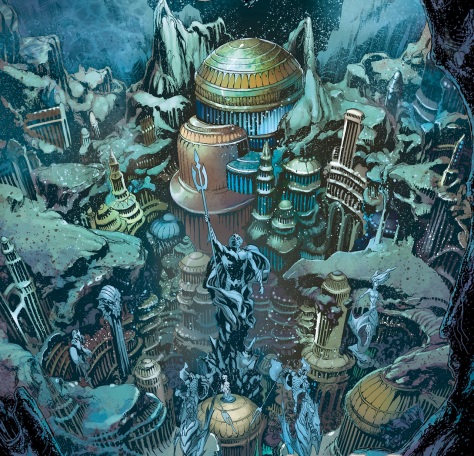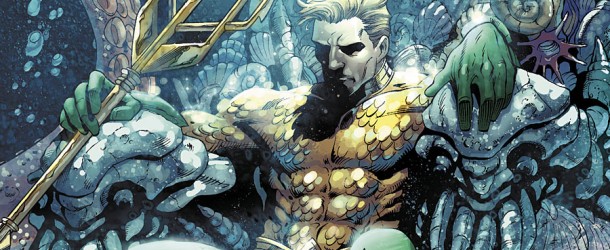If you do not live isolated in the middle of nowhere, without access to any means of communication, which by the way it would be great, you are aware by now of this new concept from Trump’s cabinet to deal with criticism: the so-called alternative facts. And I am saying latest, no newest, because alternative facts have been around for a while.
Alternative facts are basically lies. Period. If your inauguration is thrice or more smaller than the inauguration of the former president, and your critics produce evidence from several sources to support this fact, you just provide alternative facts. You only need to say that your data indicates it was the best, the largest and all the superlatives Trump’s lack of dialectic usually throws on his discourse and, well that is all. You said so, and your facts, which you never show or share, support your point of view.
This blog was created to criticise these kind of attitudes in archaeology. If you revisit some of my earlier posts you will find a profound criticism on this current of anti-intellectualism that characterises our modern society; the use of the term “professorial” by some leading politicians in the past to confront the ivory tower scholars and to defend the interests of the “common guy” they, paradoxically, represent. So, I am sorry, I understand your fear, I want to help, but let me tell you something: this fight has been around for much longer than you think.
Because the use of alternative facts to explain the human past is not new. It has been around for more than a century, from Donelly’s Atlantis the Antediluvian World to Atlantologists such as Hancock, Bauvall or von Daniken and, basically, any History Channel show nowadays. A hall of shame I refer to using the term pseudoarchaeology. In the infamous history of this phenomenon there are two key moments: first, the New Age phenomenon, when some, not all, spiritual movements advocated for a rejection of rationalism, and secondly, the democratization of access to information via the internet, a good thing in itself, but also an event that has caused problematic outcomes in terms of the spread of dubious information and interpretation. Does this sound familiar? No? Fake news and political campaigns? I am sure it does.Watch the video to see what happens when your TV brand is sold to Fox.
I watch and take notes on documentaries and books on pseudoarchaeology, not for pleasure I assure you, but because I am researching this topic with the intent of producing a book that rebukes such a damaging vision of our past. What I have learned so far is that the script of these books and television shows is rather repetitive. The author is an adventurer, not a professionally trained scholars, because, remember, professorial scholars are the bad guys. Despite his lack of training (so far I have not found a single woman on these pseudoarchaeological shows) the author has a secret to reveal to the audience that will change history as we know it. He is a truth-seeker, rejected by mainstream academia (but apparently not by the money of network TV and publishing companies) only with his ability to use common sense (and shiny computer graphics) is able to uncover the hidden truths of our past, thank God(s). In such a format, basic archaeological concepts like context, relative dating, validity of the data, respect for the evidence and for other cultures, which students learn on introductory archaeology courses, are shamelessly ignored. Thus, viewing audiences who have never studied archaeology or anthropology are not likely to have the tools for interpreting the evidence that is presented to them, even if this evidence ranges from devious to plainly false.
And this is a very important point for me. I will never, ever, blame the viewer or the reader, somebody that just wants to learn, to discover. I blame those who cash on these honest desires to acquire knowledge by producing dishonest products (they do not even deserve the name of work). I sadly have to admit that the academic response to such fallacies has been mild at best. With some exceptions (Rathje 1978; Fagan 2003), only in recent years have mass media phenomena like Ancient Aliens or American Digger been directly criticized for contributing to the destruction of heritage and the commercialization of finds (Carter 2012; Greenberg 2012; Switek 2012). It is our duty to face these fallacies and confront them in the open field. Precisely the democratization of the access to information they parasite can be our tool to counteract their noxious effect on society.
But you can be thinking now, what do I care about Atlantis? Fair enough. No worries, I can take care of that specific one. What I want to encourage in all of you is to realise that this is not a problem of archaeology. It is a problem of human knowledge. Scholars studying climate change and diminished and insulted in Fox News in the same way scholars are portrayed as morons or evil liars by people like Graham Hancock or, for my Spanish audience, Javier Sierra. The attitudes are the same. How does this relate with alternative facts in the White House nowadays? Well, alternative facts are a common feature of totalitarian regimes. Do not take my word for that, take the facts. In the sphere of archaeology you might be surprised to discover that the Nazi regime, and the “research” branch of the SS, the Ahnenerbe, was behind some expeditions to find the lost city of Atlantis. If you have the time I strongly encouage to watch one of the very scarce documentaries on the myth of Atlantis in history, and the scary consequences of believing in a primordial/superior race.
The Ahnenerbe launched as well a series of expeditions to retrieve “objects of power” such as the holy grail, the ark of the covenant or the spear of Longinus. Does it sound like an Indiana Jones film? Well, you know now how Spielberg and Lucas got the idea. But, again for my Spanish audience, next time Iker Jimenez invites you to visit is cardboard replicas of mysterious objects of power think about it twice before supporting that activity with your time and your money. I am not saying that Iker Jimenez or the current US government are Nazis. No at all. What I am saying is that the attitudes towards knowledge they portray are like a dangerous and slippery slope: you might be safe in the top, but a false step and you know where you can end up. There are not many public rebukes of pseudoarchaeology and Atlantis. A very honourable exception were two documentaries in the program Horizon of the BBC. They have aged well, and I strongly suggest you to watch them sometime. See how easily the scientific method explains what the atlantologists consider hard evidence for the existence of a primordial culture, and how shamelessly as well they ignore this evidence when their theories are proved not even to deserve that name.
Before finishing let me to point out again that I have no issue whatsoever with the people interested in this topic. Atlantis is a fantastic setting as well for fiction, and reading novels or watching films based on the myth is no better no worse to enjoy literature or cinema of other fantasy or sci-fi worlds. In fact, and contrary to what seems to be socially accepted, my favourite superhero is the DC character Arthur Curry, king of Atlantis and known by most people with the unrespectful name of Aquaman. But I do not expect to dive in the Atlantic ocean and to find any lost continent. The saddest thing about all this problem is that by exploiting the myth of Atlantis we forget to understand the meaning of the myth of Atlantis: how a culture in the top of its power became hybristic and tried to conquer the whole world by the force of arms. Pride, violence, self-annihilation, much more important things to reflect about in our present society than a race of superhuman (usually tall, blond, blue-eyed people) that civilised the barbarians that surrounded them. Too white supremacist for not being scary.

